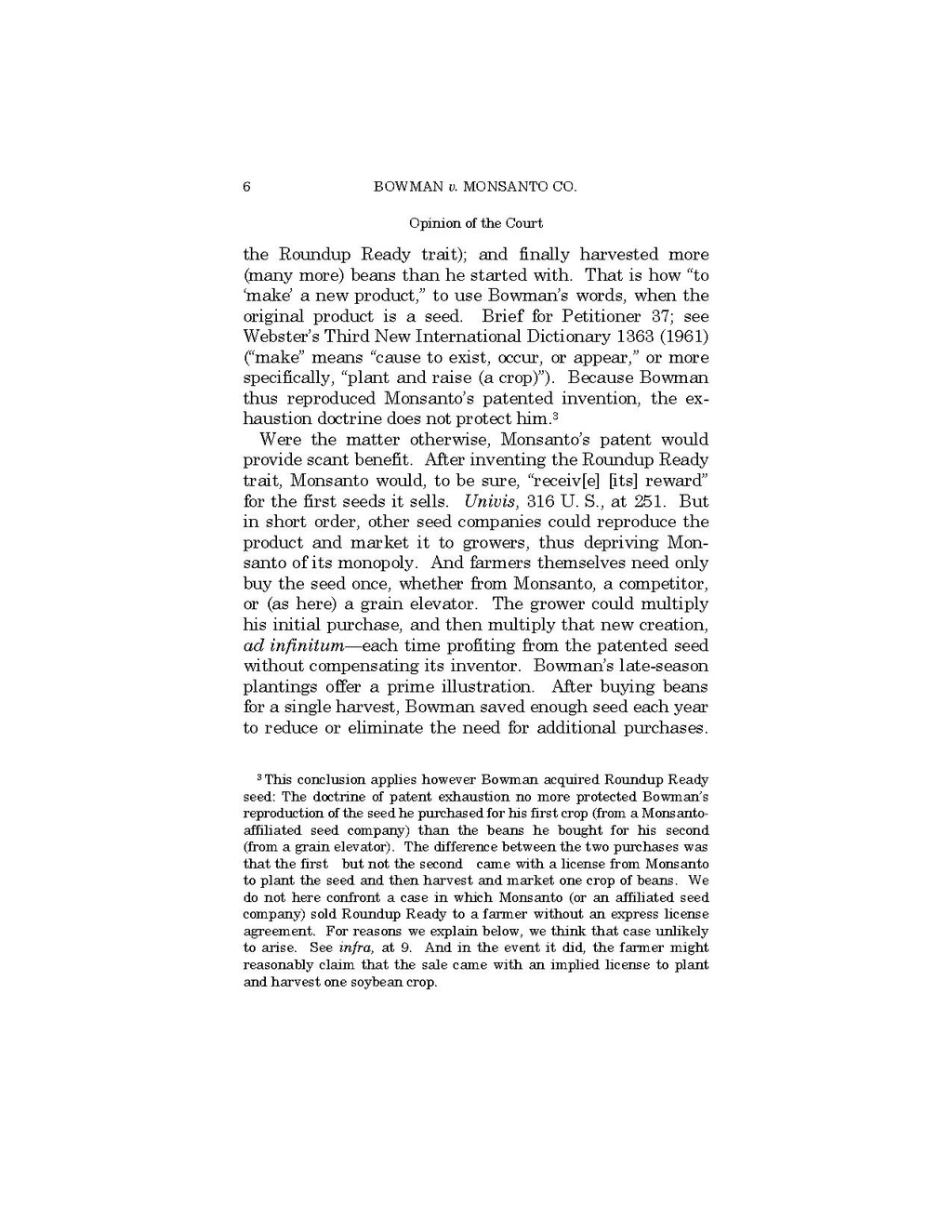Opinion of the Court
the Roundup Ready trait); and finally harvested more (many more) beans than he started with. That is how "to 'make' a new product," to use Bowman’s words, when the original product is a seed. Brief for Petitioner 37; see Webster’s Third New International Dictionary 1363 (1961) ("make" means "cause to exist, occur, or appear," or more specifically, "plant and raise (a crop)"). Because Bowman thus reproduced Monsanto’s patented invention, the exhaustion doctrine does not protect him.[1]
Were the matter otherwise, Monsanto’s patent would provide scant benefit. After inventing the Roundup Ready trait, Monsanto would, to be sure, "receiv[e] [its] reward" for the first seeds it sells. Univis, 316 U. S., at 251. But in short order, other seed companies could reproduce the product and market it to growers, thus depriving Monsanto of its monopoly. And farmers themselves need only buy the seed once, whether from Monsanto, a competitor, or (as here) a grain elevator. The grower could multiply his initial purchase, and then multiply that new creation, ad infinitum—each time profiting from the patented seed without compensating its inventor. Bowman’s late-season plantings offer a prime illustration. After buying beans for a single harvest, Bowman saved enough seed each year to reduce or eliminate the need for additional purchases.
- ↑ This conclusion applies however Bowman acquired Roundup Ready seed: The doctrine of patent exhaustion no more protected Bowman’s reproduction of the seed he purchased for his first crop (from a Monsanto affiliated seed company) than the beans he bought for his second (from a grain elevator). The difference between the two purchases was that the first—but not the second—came with a license from Monsanto to plant the seed and then harvest and market one crop of beans. We do not here confront a case in which Monsanto (or an affiliated seed company) sold Roundup Ready to a farmer without an express license agreement. For reasons we explain below, we think that case unlikely to arise. See infra, at 9. And in the event it did, the farmer might reasonably claim that the sale came with an implied license to plant and harvest one soybean crop.
